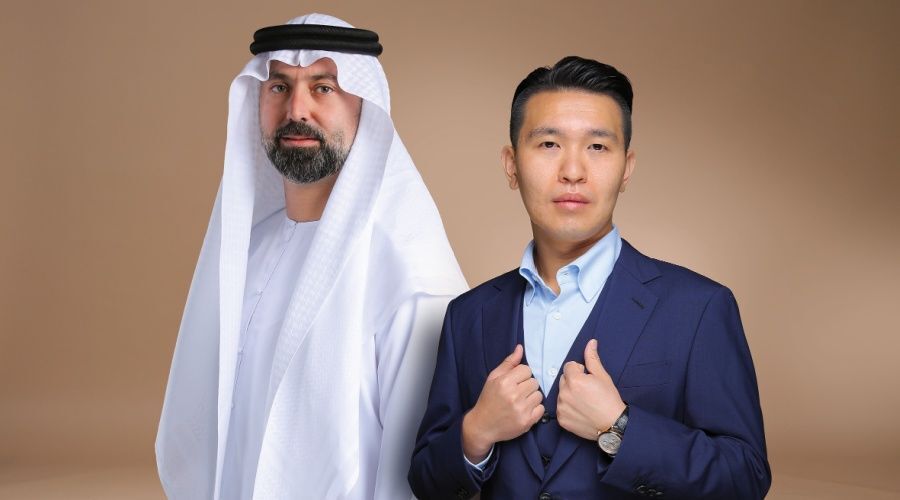It’s a tale as old as time: from the clashes of industrial titans like Frick and Carnegie to modern-day tech fallouts like Eduardo and Zuck, or Woz and Jobs.
Harvard Business Review reports that as many as 43% of founders end up buying out their co-founder due to interpersonal rifts and power struggles. It’s easy to overlook when everything feels like sunshine and rainbows, but when your back is against the wall, the value of the right co-founder becomes painfully clear.
Do you have someone beside you to absorb the blows, share the burden, and problem-solve through the panic? Or are you up s*** creek without a paddle?
It’s a scenario every founder will face at some point, and the outcome almost always hinges on the strength of the founding team.
Zooming out, finding the right co-founder is one of the most foundational and fraught decisions any early-stage founder can make. It can define the trajectory of a startup, yet too often the process is clouded by platitudes and gut instinct.
Co-founders are like a marriage, the cliché goes. But beyond the saying, how do you actually choose the person, or people, you will build with? And how do you set that relationship up for long-term success?

Stop chasing signatures and wires for your next transaction. Streamline the entire process through one platform.
Zest helps fund managers, investors, and entrepreneurs digitis
e their deal execution to save time, reduce costs, and simplify communication.
Design your deal, invite your participants, and execute your transaction, all in one place.
See why MENA-based founders and investors have trusted Zest with over 150 transactions and digitised $175M+ in transaction volume.

What follows is a structured playbook on How to Find the Right Co-Founder, distilled from the real stories and candid advice of seven of MENA’s best startup founders.
Based on feedback from our first instalment in the series, we have decided to allocate each step its own distinct article. This should make navigation a bit easier and allow you to jump straight to what matters most for your needs.
Across six pieces, you’ll learn:
Whether you’re a solo founder determined not to stay solo or a founding team looking to strengthen your bond, this guide is designed to help you navigate the journey of finding, and keeping, the right co-founder.
Fair warning: this is a sugarcoat-free zone. Building a startup in MENA, or anywhere for that matter, is exceptionally hard, chaotic, and far from glamorous. Yet one insight rings through in this instalment, with the right partner by your side, the impossible starts to look a whole lot more surmountable.


Table of contents
Why trust trumps every other trait
Spotting true commitment (and avoiding flakiness)
Ethics and low ego as culture-setters
Camaraderie and emotional safety in the trenches
Identifying your own blind spots
When to prioritise technical vs. business expertise
Generalist grit over narrow specialists
Evolving roles as the company scales
The one-to-two year “time will tell” test
The airport / lunch test for chemistry
Trial projects and collaboration before commitment
Aligning on values, vision, and goals from day one
Healthy conflict vs. destructive conflict
Decision-making frameworks that prevent deadlock
Managing stress without damaging trust
Communication habits that compound trust
Avoiding the equal-split trap
Vesting schedules and founder prenups
Governance, roles, and dispute resolution
Friends, family, and the dangers of “handshake equity”
Why patience beats settling
Expanding your search beyond the obvious circles
Learning from “failed founders”
Interim solutions: advisors, early hires, and community
Thank you once again to the wonderfully insighful: Mostafa Amin (Breadfast), Mark Chahwan (Sarwa), Julie Barbier-Leblan (Merit), Eslam Hussain (Invygo), Mohamed Al Fayed (Grubtech), Mohammad AlRazaz (OTO), and Kevin Kilty (Hubpay), for sharing nuggets of wisdom by the articulated lorry load.
Now, let’s dig into it.

Step 1: The non-negotiables
When it comes to choosing a co-founder, plenty of qualities fall into the “nice-to-have” camp. They make life easier and help things run more smoothly, but none of that really matters if the non-negotiables aren’t there. Some qualities are simply make-or-break.
I’m conscious that the trust drum was beaten so hard in the first edition that its sinews are straining, but there was complete consensus among the founders I spoke to: trust and commitment outweigh credentials or polished résumés every single time.
Trust
“Without a doubt: first and foremost, trust.”
Trust is the bedrock of every strong co-founder relationship. It means integrity: knowing that if you hand your co-founder your wallet, or more importantly the startup’s bank account, it will be handled with care.
Mohamed experienced this kind of trust with his co-founder, and childhood friend, Omar:
“I could hand him my wallet and know it’ll be there the next day. That’s fundamental.”
It also means trusting each other’s decisions and motives, especially when the pressure mounts. If you don’t fully trust your partner, every disagreement becomes a potential fracture.
As we’ll see, trust gives co-founders space to disagree openly without fear – a crucial ingredient for honest communication – especially handy for/if/when things go south.
Commitment
Right alongside trust is commitment i.e. an unwavering dedication to both the venture and to each other.
“I think commitment is the most important feature in any founder… Because everything else is very doable. But if commitment is not there? Forget about it.”
In fact, Mostafa’s emphasis on commitment comes from painful experience. Before Breadfast succeeded, he had four failed startups, two of which he directly attributes to founder issues.
That’s why, before starting Breadfast, he sat down and wrote out his number-one criteria for co-founders: “a very committed team.” Commitment means seeing things through, riding out the highs and lows, and not bailing when the initial excitement wears off.
As Mostafa notes, anyone can get excited about a great idea over a coffee chat:
“The air is full of excitement… ‘Let’s go, we’re gonna build an empire,’ blah blah.”
But the real test comes a few weeks in, when the grind begins and the setbacks arrive.
“A week later — believe me — two weeks later, energy changes. A month later? Energy will change again.”
When the first few investors say no, or a product launch goes sideways:
“Doubts will start flying.”
The right co-founder’s energy and resolve won’t fizzle out or jump over board at the first sign of trouble. They stay in the trenches with you, equally determined to find a path forward.
Commitment is also contagious. If both founders have it, they reinforce each other in tough times; if one lacks it, the whole endeavour can unravel in a heartbeat.

Stay ahead in MENA’s tech landscape
This is premium content. Subscribe to read the full story.









